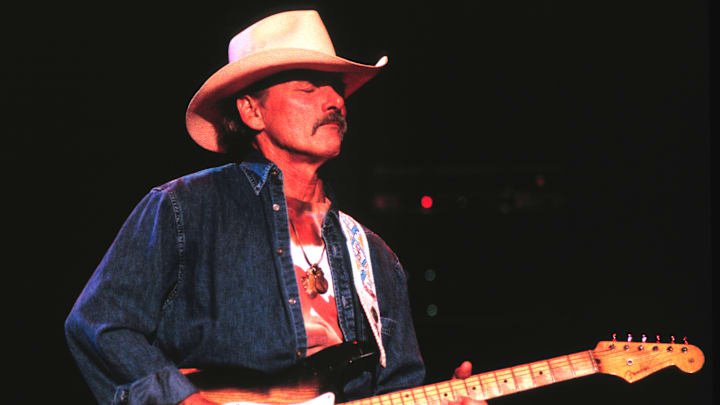“Seven turns on the highway
Seven rivers to cross
Sometimes you feel like you could fly away
Sometimes you get lost”
Those words are from “Seven Turns” written by Dickey Betts in 1990. You might think that when one of the most celebrated guitarists of his generation passes away suddenly at the age of 24, the band bearing his name might perish as well. And when the band’s bass player dies a year later, that would be it, right?
Not if you’re the Allman Brothers. When you’re the Allman Brothers, you simply retool and then release your most commercially successful album. It’s true that after founding guitarist Duane Allman died in a motorcycle crash in 1971, the band from Florida still had the other brother – Gregg and Gregg Allman is a formidable weapon in any band’s musical toolbox. But Gregg didn’t really take over leadership of the band after his brother’s death. Dickey Betts did.
Betts, who passed away on Thursday at his home in Sarasota, is one of the most underrated guitar players and composers of the latter half of the 20th century. Along with Duane Allman, he formed the Allman’s twin lead guitar attack which began transforming the fledgling genre of southern rock into a mainstream staple. Duane, who seemed to imbibe the very core of American roots music – gospel, soul, jazz, folk – through his rock guitar, was an extraordinary prodigy who didn’t pick up the guitar until he was 13.
Dickey Betts passed away last week
By the time of his death at age 24, he was redefining what country rock guitar could be. Betts may not have been the slide virtuoso that Allman proved to be (though he could handle the bottleneck to be sure), but otherwise, he was every bit his equal. As a composer, he surpassed Duane, and virtually everyone else writing in the country rock field.
On the early Allman Brothers albums – their self-titled debut and their follow-up, Idlewild South – Betts and Allman shared leads, playing off each other with an effortless, unfussy purity that could be highly melodious or burn-down-the-barn rocking. Both sides of their playing are on display in the titanic live recording At Fillmore East. The 13-minute live performance of Bett’s “In Memory of Elizabeth Reed” is a prime example.
Betts didn’t rely on distortion to make an impact. He played fast and he played clean. Along with Duane, he showed that country guitars could aspire to the heights normally reserved for jazz fusionaries like Jeff Beck or John McLaughlin.
After Allman’s death, and the subsequent death of bass player Berry Oakley, Betts wrote four songs for the Allman’s first new studio album, Brother and Sisters. Included in those songs is the instantly recognizable instrumental “Jessica,” which would become a fan favorite. And the blue masterpiece, “Southbound,” which Gregg sings.
Finally, Betts also wrote and sang “Ramblin’ Man,” which became the band’s highest-charting single ever. One of the reasons for the success of Brothers and Sisters, beyond the simple fact of brilliant musicianship, is that Betts and Gregg Allman recognized that Duane could not simply be replaced. The dueling lead guitars that had defined their early songs gave way to a new lineup, with Chuck Leavell taking over on keyboards and Gregg, who had played piano, moving over to the traditional rhythm guitar.
Dickey Betts handled the leads all alone. And he did it sensationally well.
The Allman Brothers would eventually break up, reform, and break up again. Betts and Gregg would have a falling out, and then reconcile. All pretty standard stuff for a long-time successful rock band. In the middle of it all, Dickey Betts would put together Great Southern and The Dickey Betts Band, and continue to put out first-rate, guitar-based southern rock. But outside the world of country-rock fans and guitar enthusiasts, Betts never quite got the recognition he deserved. I suppose that is what happens when the band you are most associated with is named for someone other than you.
He suffered a stroke about five years ago, which effectively ended his performing career. But Dickey Betts left behind so much music for us all to enjoy. If I could quote “Elizabeth Reed” here, I would. But maybe it’s better that I can’t. Maybe it’s better if you just put on your stereo tonight, sit back with the beverage of your choice, and listen to a couple of the now-departed greats playing guitar like few have ever done.
